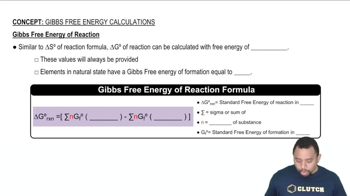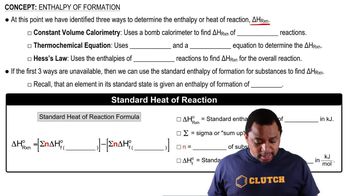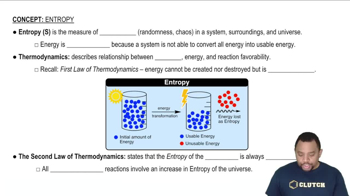Gibbs Free Energy (ΔG)
Gibbs Free Energy (ΔG) is a thermodynamic potential that indicates the spontaneity of a process at constant temperature and pressure. A negative ΔG suggests that a process is spontaneous, while a positive ΔG indicates non-spontaneity. In the case of perfume diffusion, the process is spontaneous as the molecules spread out, leading to a negative ΔG.

 Verified step by step guidance
Verified step by step guidance

